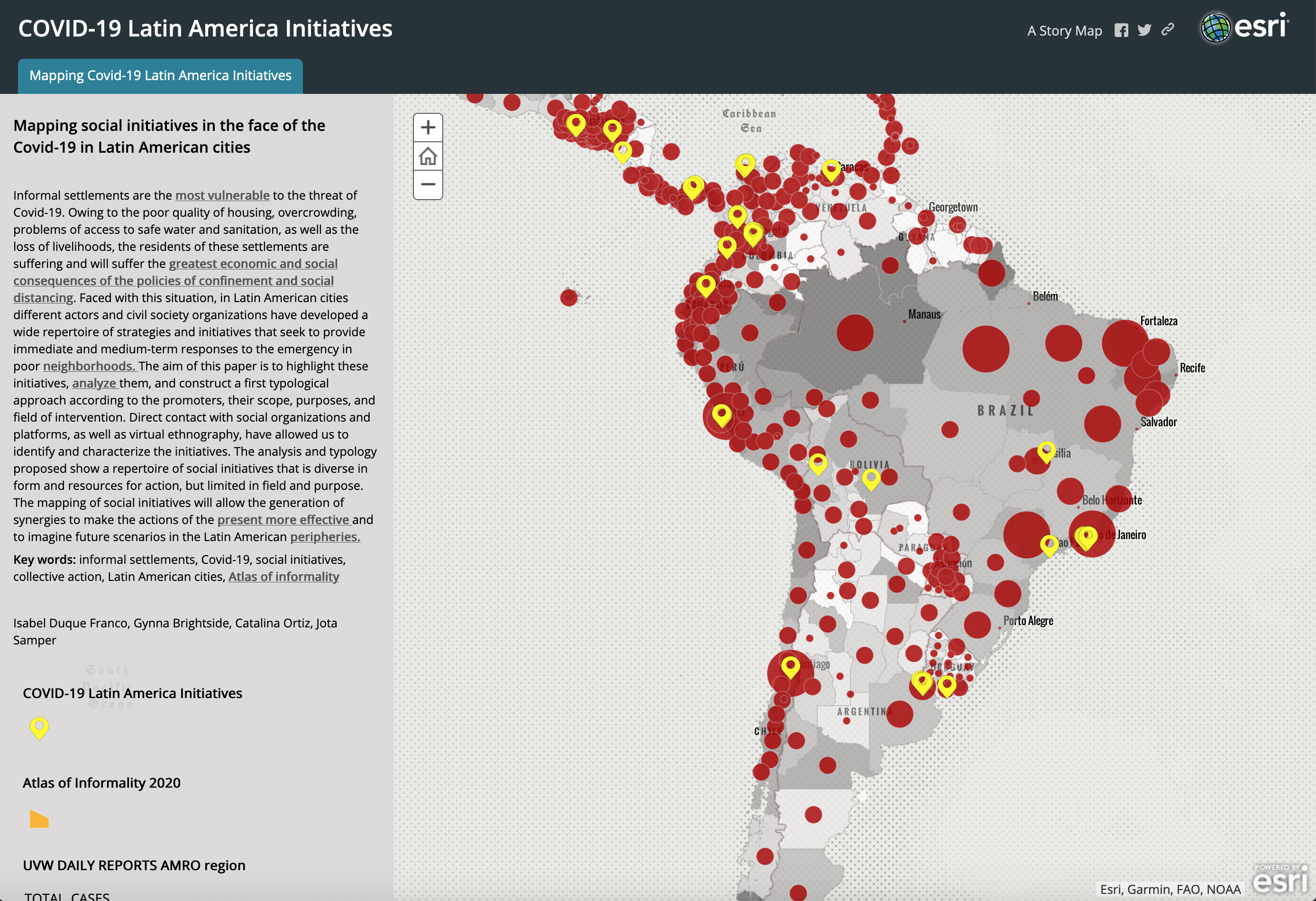
How are civil society organizations responding to COVID-19’s impacts on informal settlements?
The Synergies for Solidarity campaign aims at making visible, analysing, and connecting initiatives that have emerged from different sectors and scales of civil society that seek to respond to the emergency in informal neighbourhoods.
A paper has been published with the results of this research, that aims to map these initiatives and identify strategic approaches to tackle the issues raised by the pandemic, given the strengths of those undertaking the initiative, and the scope, purpose and sphere of intervention. Using direct contact, a survey, and a virtual ethnography with social organizations has allowed us to identify and characterize the initiatives.
The guiding question is: How are civil society organizations responding to the COVID-19 impact on informal settlements ?
The research team argues that the repertoire of collective action from civil society in/for informal settlements has focused at a neighbourhood level on emergency measures around food security, pedagogies for prevention and self-care, sanitation and income relief.
A secondary effort has focused on how alliances were forged during the pandemic.
Are these initiatives the result of existing collaboration, or do the conditions imposed by the pandemic force organizations to create new alliances? The urgency of state action (1) has meant that crucial spheres of informality, vital for the resilience of informal settlements, have been neglected. These include mobility, human security, waste collection and citizen participation, and their neglect impedes the more coordinated action that is the basis for a healthy recovery phase.
Read the entire article here
More information about the Synergies for Solidarity Campaign here
(1) This situation is epitomized by Brazil, the country with the second-most cases of COVID-19 (as of 30 May 2020). Yet the national government has minimized its relevance and has exacerbated the tension with local governments, which has spurred vast mobilization of civil society, generating an inverse relationship between the governmental action and social initiatives.




